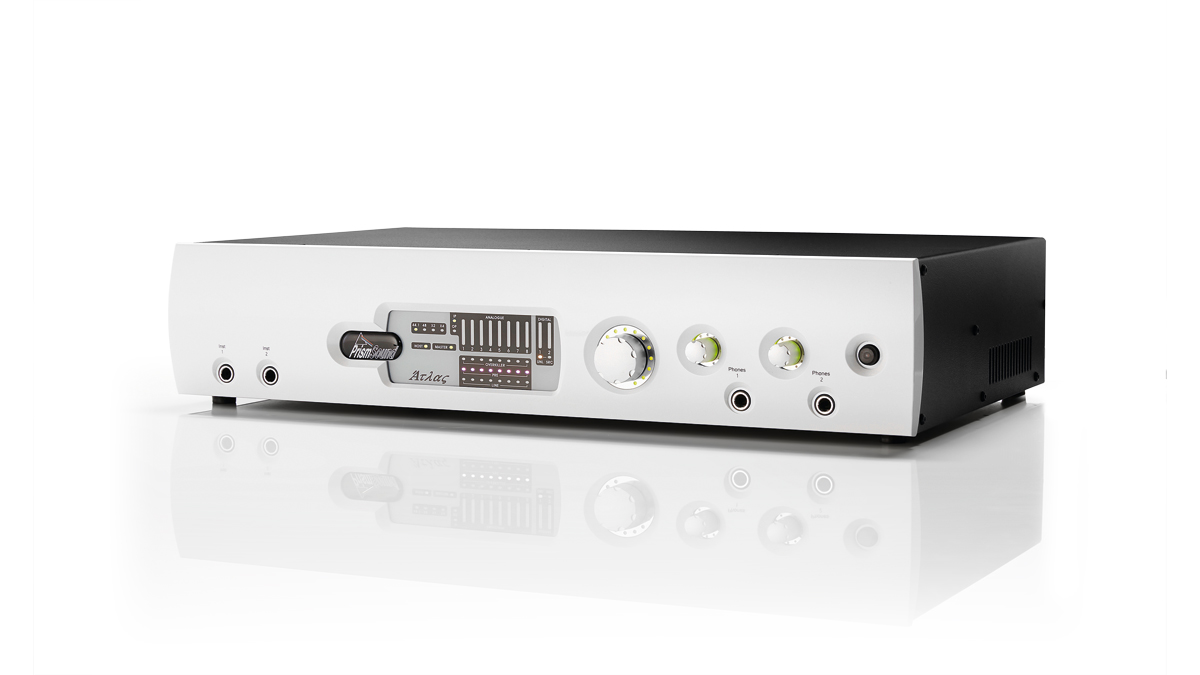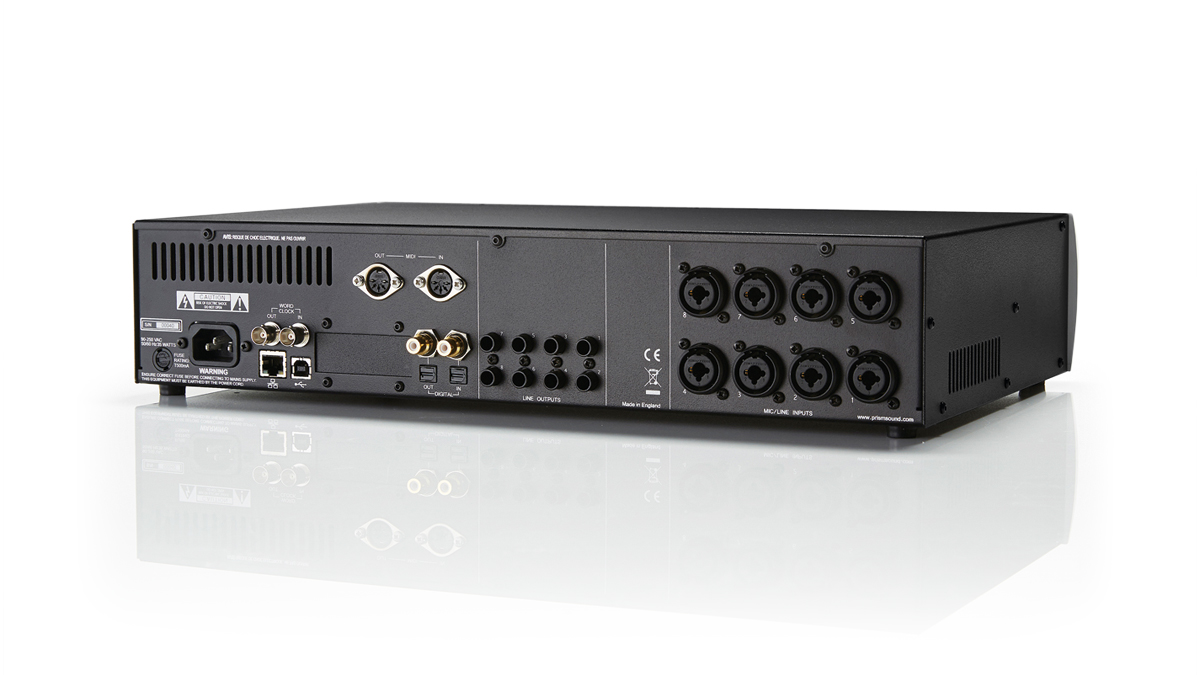MusicRadar Verdict
Stunning audio quality, with plenty of internal I/O and flexible interfacing via its MDIO port.
Pros
- +
Fantastic, studio-level quality.
Cons
- -
None.
MusicRadar's got your back

Prism Sound Atlas Audio Interface

Prism Sound Atlas Audio Interface
Prism Sound has quickly developed a reputation as a go-to choice for many professional users and studios seeking exemplary audio quality at the interfacing stage.
Its Atlas audio interface continues the tradition set by previous interfaces including Orpheus and Lyra. The lineage to Atlas is most clear from Prism Sound's Titan unit, however, with a number of user-requested additions offered here over that model.
Atlas is a 2U, USB-interface with plenty of expanded internal I/O possibilities but the extra ace up its sleeve is an MDIO port, which provides additional, flexible interfacing capability.
You'll spot Atlas' visual relationship to Titan immediately, with the same livery and front-panel ports and dials on display. However, to accommodate the expanded I/O offered on the rear panel of the unit, Atlas is twice the height of Titan, requiring 2U of rack space.
While the interface is very happy to reside on a desktop, Prism Sound provides metal ears if you prefer to rack it up instead. The rear panel shows the expanded internal interfacing capabilities Atlas offers, with eight coveted Prism Sound preamps provided, which allow for either XLR or TRS connections, alongside eight dedicated balanced 1/4-inch outputs.
You'll also find digital inputs, with supported formats including S/PDIF and ADAT, meaning that Atlas is capable of recording up to 18 channels at once, at up to 192kHz, though digital track count becomes lower at super-high resolution.
A world of possibilities
However, both further compatibility and a degree of future-proofing are offered by the MDIO port, options for which Prism Sound intends to expand over the coming years. In simple terms, MDIO is a flexible, modular expansion system which Prism Sound can fit with the interface option of your choice.
So, if you need direct compatibility with Pro Tools HDX, for instance, you can slot in the appropriate connection board. In future, developments may include Thunderbolt interfacing, depending upon the connection trends and developments in the years to come.
This is an idea taken from Prism Sound's older ADA-8 system, whose flexibility has proved one of its major selling points. It's also possible to daisy-chain multiple Atlas interfaces, or to combine an Atlas with other models from Prism Sound's range, for an even more fully spec'd system.
In use, Atlas feels like a thoroughbred interface from the moment it's up and running. You can configure some settings from the front panel but Prism Sound also provides a comprehensive Control application to allow you to set up Atlas' assorted I/O over software.
This means that for each preamp channel, you can enable phantom power, configure levels, enable a high-pass filter and invert phase, for example, while the headphone ports are flexible enough to receive sub-mixes, the full mix returning from your DAW, or a hybrid Mixer configuration, meaning that you can put together an appropriate 'performer mix' at the tracking stage.
There's also an 'overkiller' feature available to every analogue input, which enables a Limiter to help protect against signal overload. All connections are reflected on the front panel, where you can also set up two Instrument inputs for direct connections via guitars, basses or external synths.
Atlas is a sumptuous interface, offering unparalleled sound quality. Prism Sound's reputation is further enhanced with its arrival and, since the quality of its interfaces was already on a pedestal for most of us, that's a glowing endorsement.
Atlas provides the most 'in the box' recording solution Prism Sound has offered to date, with the expanded native I/O extremely welcome and the MDIO connection port offering further flexibility into the future from an interfacing viewpoint.
Of course, quality of this kind comes at a significant price but if you're investing at semi-pro or professional studio level, Atlas provides configurability and quality of the highest order.
“A synthesizer that is both easy to use and fun to play whilst maintaining a decent degree of programming depth and flexibility”: PWM Mantis review
“I feel like that song had everything we needed to come back with”: Bring Me The Horizon’s Lee Malia on Shadow Moses, its riff and the secrets behind its tone, and why it was the right anthem at the right time
“I said, ‘Are we sure we can write a song about death?’”: The story of Mike + The Mechanics' classic No.1 The Living Years









